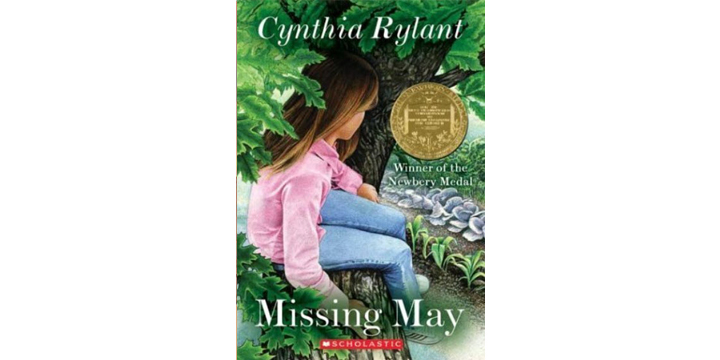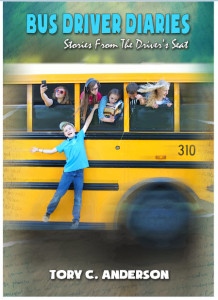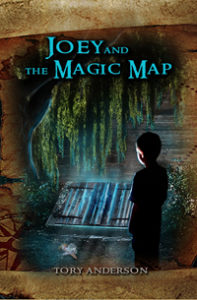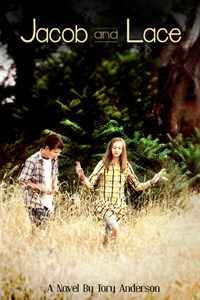Cynthia Rylant doesn’t write long books. She doesn’t need to. She is a master craftsman with words, and can say so much with so little. She takes us to a trailer house in the mountains of West Virginia and introduces us to four characters who could be nothing more than stereotypical hillbillies. Stereotypes are as common as gravel. Gravel is the “normal” of the world. As we read the book, what at first seemed to be “gravel,” transforms into diamond. It’s as if Rylant is the opposite of a master illusionist; Instead of creating illusions, she strips them away to show the reality of the beauty within.
We may expect people who live in trailers in the West Virginia Mountains to meet a certain stereotype. Because the setting of Missing May happens to be a trailer on a West Virginia mountain it isn’t surprising to have characters named Cletus and Ob. May and Summer, two of the other characters, aren’t such odd names but they meet the stereotype in other ways. May is the obese wife who eats too much junk food suffering from diabetes. Ob is the devoted husband who is as skinny as his wife is fat. Cletus has acne and long greasy hair and wears one of those hats with flaps on the side. Summer . . . well, Summer isn’t a stereotypical hillbilly because she was born in Ohio. She’s a transplant working hard to fit in. They live in a stereotypical trailer with a missing window and loose siding. There is the expected, broken down car sitting in the weeds next to the empty doghouse. But don’t be fooled by all the stereotypes. Stereotypes are the gravel. As I told you, May, Ob, Cletus, and Summer are the diamonds.
I’m pretty sure that in my world people like Cletus, Ob and May would be shunned and laughed at for not being “gravel” enough. Summer would be tolerated but under suspicion by association. But that’s the beauty of a good book—it takes you out of your tired, mundane world and puts you where you can see things as they really are. From the moment I hear of Ob’s love for May when Summer watches Ob braiding May’s long yellow hair and she exclaims, “it was all I could do not to go to the woods and cry forever from happiness,” I become aware of the actual value of diamonds over gravel.
Ob and May may be just a couple of anonymous, stereotypical hillbillies on the surface, but to see them through Summer’s eyes is to see something much more beautiful. Summer is a girl whose mother died when she was a toddler. She is bounced around among the families of her aunts and uncles unappreciated and unloved. Perhaps Summer is the diamond that doesn’t match their gravel. When the hillbilly relatives arrive from West Virginia for a visit they take one look at Summer, see how she is afraid to even ask for a glass of milk, and “they knew an angel when they saw her and took me on home.” Ob and May had an eye for diamonds.
Ob and May are older. They have little money and live in a trailer. Still, the biggest, richest homes anywhere couldn’t match the beauty of the trailer in Summer’s eyes. The first thing summer sees inside are all the whirligigs that Ob has made. They cover the walls and shelves. Summer says:
I’d seen plenty of whirligigs, but never any like Ob’s. Ob was an artist . . .One whirligig was meant to be a thunderstorm and it was so like one, black and gray, beautiful and frightening. Another was Ob’s idea of heaven, and I thought his angels just might come off that thing and fly around that house trailer any minute, so golden and light were they.
I stood there before those shelves, watching these wonders begin to spin as May turned on the fan overhead, and I felt like a magical little girl, a chosen little girl . . .”
And then May takes Summer to the kitchen, opens all the cupboards and the refrigerator door. She says, “We want you to eat, honey.”
My eyes went over May’s wildly colorful cabinets, and I was free again. I saw Oreos and Ruffles and big bags of Snickers. Those little cardboard boxes of juice that I had always, just once, wanted to try. I saw fat bags of marshmallows and cans of SpaghettiOs and little plastic bear full of honey. There were real glass bottles of Coke looking cold as ice in the refrigerator and great big half of a watermelon taking up space. And, best of all, a carton of real chocolate milk that said Hershey’s.
Whirligigs of Fire and Dreams, glistening Coke bottles and chocolate milk cartons to greet me. I was six years old and I had come home.
Perhaps it’s just a rusting, old trailer on a mountain on the outside, but to Summer—and to me—it’s a magical place with diamonds inside.
Although Summer recognizes the diamonds in Ob and May, she struggles with Cletus. Perhaps it’s because she is twelve and Cletus is an annoying male, twelve-year-old classmate. It could also be Cletus’s greasy hair and acne. Or maybe it’s the suitcase he carries around stuffed full of pictures he collects from newspapers and magazines. Certainly it’s because he befriends Ob and spends hours at a time at their trailer. Somewhere along the line the diamond in Cletus starts to shine through, even to Summer’s eyes. She sees how much Ob needs him. She sees how much his parents love him. She sees what Cletus dreams to become. He’s still just a classmate at the end, but one with much more value than gravel.
Speaking of diamonds and value, the crux of the book is what will come of missing May. Both Ob and Summer loved May deeply. Both Ob and Summer miss May deeply. For Ob, the loss isn’t just a deep hole; it’s a bottomless pit. Summer’s loss of May may be the loss of a diamond, but in Ob she still has another diamond and life can go on. It doesn’t seem to be the same with Ob. As Summer says, “. . . I think Ob’s going to die, truly die, if I can’t figure a way to mend his sorry broken heart. ”This is a big problem for Summer. It’s not the practical problem of who will take care of her if Ob goes; it’s the problem of loving Ob so much and realizing that maybe she isn’t worth enough to him to live for. Perhaps she’s not a diamond to him. She says, “ . . . deep down he was finished. Finished waiting for May and finished waiting for all his grief to dry up and leave him. And maybe, in a way, finished with me.” And so Summer wonders, what is her worth? The conclusion is both simple and complex, and ultimately satisfying.
Missing May is a story of connection and love, of seeing and recognizing the value of the diamonds in the gravel. It’s the story of loss and doubt—the very things that give love its meaning. It’s written with the gentleness of a summer rain that washes the dust away so that the colors of the world around shine brightly again and we sigh for the beauty.
__________________________________________________________________________________
These books by Tory Anderson are now available on Amazon in Kindle and paperback format:





